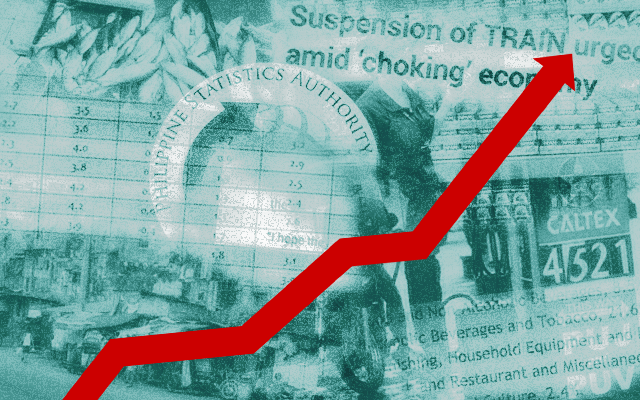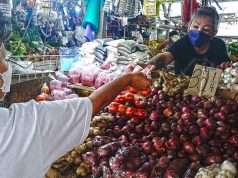Economists and consumers are worried about the adverse effects of the 6.4 percent inflation rate recorded for August 2018.
The Philippine Statistics Authority presented the data on Tuesday morning, showing the headline inflation rate spiking to 6.4 percent year-on-year.
The PSA also recorded higher inflation in regions across the country as compared to 2017. In the National Capital Region alone, inflation rose to 7 percent in August, almost twice the 3.3 percent hike in the same month last year.
The Philippines now has the highest inflation rate in the Southeast Asian region in 2018 thus far. It is also the highest in nine years.
Financial institutions have expressed concern over the inflation rate and its effect on the country’s economy. Credit rating service Moody’s expects that the Philippines will fail to meet its growth forecast due to the peso’s reduced purchasing power.
Business journals around the world have observed that the spike in prices, coupled with the effects of the Tax Reform Acceleration and Inclusion Law, has slowed down household spending, a key economic driver, in the past few months.
The prices of food and non-alcoholic beverages have spiked by 8.5 percent since last year, forcing consumers to cut down on other expenses.
Some economists and consumers are more concerned with how inflation could hit the financially-disadvantage sectors of society.
From the Dean of Ateneo School of Social Sciences/ my former Economics professor. pic.twitter.com/z2vdqNekyx
— beer4lyf (@ayokonapopls) September 5, 2018
For consumers in the middle class, the increase in prices and the immediate effect it will have on households is a more pressing concern that needs to be addressed even as some analysts attempt to explain the supposed long-term benefits of a rise in inflation.
To the privileged an increased inflation rate of 6.8% may just be a number signifying a miniscule effect to their lives. To the middle class, it’s another burden to their day to day living. But lest we forget, for the poor, it decides whether they get to eat today or not.
— Justin (@justingftw) September 5, 2018
Just because you don’t feel the effects of the increasing inflation rate, that doesn’t mean that it won’t have a significant impact on others too. For some, this could mean depriving them of even the basic necessities of life.
— ☆ ninna ☆ (@lebrillaninna) September 6, 2018
Steps being taken
Global oil price hikes, weakening exports against an increase in imports and the rice crisis are some of the factors analysts and economic managers have brought up in explaining the unprecedented inflation.
Presidential spokesperson Harry Roque said that the country’s economic managers are already working on ways to stem inflation.
Economic Development Cluster lists immediate reforms for reducing food prices https://t.co/1yh8FsYDbO pic.twitter.com/tdg3M1aVyB
— Bangko Sentral (@BangkoSentral) September 5, 2018
Among its plans are the distribution of the stored food in the National Food Authority’s warehouses and helping expedite importation of rice, sugar and other products to be sold at a regulated price.
Damage to agricultural areas that affected production is believed to have been a factor in the increase of food prices in recent months.
“The spike in the prices of vegetables was attributed to seasonal weather conditions. We will see relief in this area after the typhoon season,” the economic managers said in the statement.








